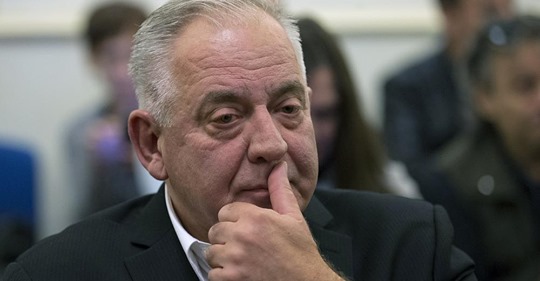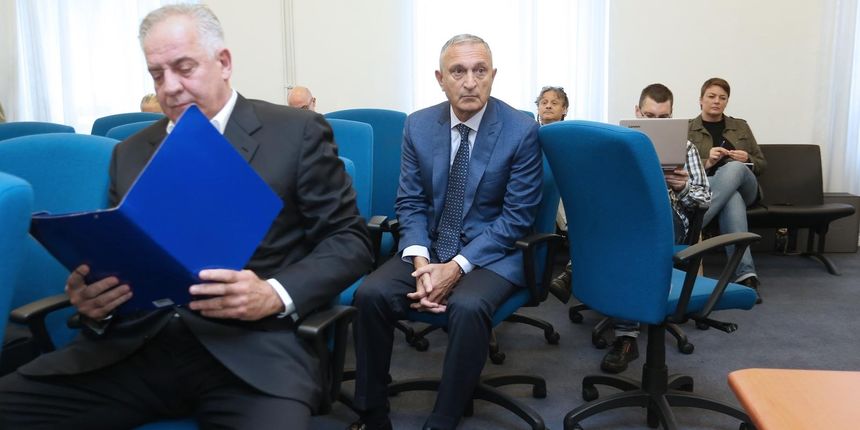IS THE NEW EU PRESIDENCY A RUSSIAN TROJAN?

By: Dr. Theodore Karasik
Photo: Euronews/RTL
Is the new EU Presidency a Russian Trojan horse? Croatia’s trial of the decade suggests it is!
In February 2019, I warned in an op-ed for Euronews that Croatia’s biggest trial of the decade could hand Russia the keys to Europe. Less than a year later, Russia may well have those keys – and might be on the brink of using them to unlock Putin’s longstanding plans to destabilise the EU.
The pivotal event comes in the form of Croatia’s ascension to the Presidency of the Council of the European Union, which could pose a grave threat to the integrity of the EU system and trans-Atlantic alliance.
Just days before Croatia took its position in charge of the EU, the country’s biggest trial came to an abrupt conclusion with the announcement of the court ruling against head of Hungarian energy group MOL, Zsolt Hernadi, who was found guilty of bribing former Croatian Prime Minister Ivo Sanader to allow MOL to take control of Croatian state energy firm INA.
The problem is that two renowned legal experts, appointed as independent Trial Monitors in the decade-long legal battle, have accused Croatian state prosecutors of “bias,” breaching EU fair trial standards and violating the rights of the defendants – apparently to cover-up a covert Russian lobbying operation to control a gas transshipment route to Europe.
I have read the 182-page interim report, and it corroborates in unnerving detail many of the questions and concerns I raised previously in my Euronews op-ed about this trial.
The first point to note is that the Trial Monitors who wrote the report hail from the top echelons of judicial expertise in Europe; namely Judge Kai Ambos, chair of criminal law at the Georg-August-University Göttingen in Germany, a judge at the Kosovo Specialist Chambers in The Hague and Counsel at the International Criminal Court, alongside Lord David Anderson QC, a Judge of the Courts of Appeal of Guernsey & Jersey, where he is also the Investigatory Powers Commissioner and previously the UK government-appointed Independent Reviewer of Terrorism Legislation.
Ambos and Anderson were appointed to audit the fairness of the criminal proceedings under explicit instructions to act independently of any of the parties in the case. Their conclusions raise stark questions about the corruption of Croatian institutions under the influence of Russian interests.
The Trial Monitors accuse the Croatian court of “bias” in favour of Croatian “national interests” and breaching internationally-recognised fair trial standards, “including violating Article 6(1) of the European Convention on Human Rights (ECHR).”
Their report lists a litany of procedural irregularities, described as violating the “fair trial rights” of the defendants. These include not allowing the defence sufficient preparation time, excluding the public from key points in the trial without record in the court minutes, and imposing an ‘ex officio’ lawyer unilaterally appointed by the court and thereby breaching the right to choose legal representation, to name just a few problems.
In themselves, these grave irregularities beg the question as to how a country whose judiciary is believed by top legal experts to operate with no respect for EU fair trial standards could end up holding the very EU presidency itself.
But the trial monitors’ report goes further, alluding to the geopolitical backdrop of Russia’s efforts to co-opt Croatia as an entry-point into EU energy markets.
The report points out that the prosecution relied on questionable witnesses involved in money laundering and under criminal investigation. The Croatian state anti-corruption agency USKOK is accused of systematically failing to investigate the star witness for the prosecution, Robert Ježić as well as his business partner Swiss lawyer, Stephan Hürlimann.As the report notes, “Mr Hürlimann’s role in the laundering of the alleged bribe proceeds does not appear to have been fully scrutinised… USKOK has failed to investigate pertinent areas of enquiry regarding Mr Ježić’s credibility and its conduct of the investigation raises issues of impartiality. Mr Ježić’s credibility is put in issue by his status as an accomplice, his benefit of €5 million and his personal interest in Mr Hernádi’s conviction.”

As I have previously written, Ježić’s claims were contradicted during the trial by witness testimony from oil industry consultant, Imre Fazakas and Russian oil magnate, Mikhail Gutseriev. Both said that Ježić had “stolen” €5 million from Gutseriev, allegedly given to Ježić to lobby the Croatian government on behalf of the Družba Adria project – a longstanding Russian pipeline plan to transport Russian energy to Europe through the Croatian port of Krk.
Like me, Judges Ambos and Anderson were shocked that none of these issues were properly investigated by USKOK nor given serious consideration at the trial. Ježić himself admitted to the court that he used the sum to benefit his own companies and never even passed any of it to Sanader. And he failed to return the money to the court.
The Trial Monitors note these facts, then criticise USKOK’s “failure to investigate the evidence given by Mr Fazakas and Mr Gutseriev to establish whether what Mr Fazakas had said about the money could be proved or disproved.”
In short, the report provides alarming documentary evidence of Croatian judicial corruption under the abiding influence of Russia. It also suggests that Croatia’s EU Presidency could pose a serious risk to European security. The Council of the European Union is already viewed as lacking accountability due to excessive secrecy. The EU must ensure that Russia does not leverage its influence in Croatia to exploit its EU presidency as a proxy for Russian energy interests.




